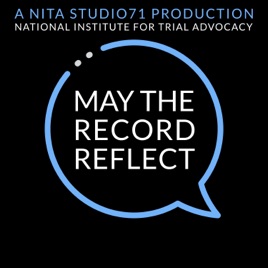
Advertise on podcast: May the Record Reflect
Rating
4.1 from
Country
This podcast has
51 episodes
Language
Publisher
Explicit
No
Date created
2019/10/18
Average duration
56 min.
Release period
31 days
Description
If you’re a litigator or trial lawyer, your life is full—in and out of the courtroom. May the Record Reflect is the podcast of the National Institute for Trial Advocacy, and we know that if something related to lawyering is interesting to us, chances are it’s interesting to you, too. Trial skills, office life, personal development, and more—it’s all fair game on May the Record Reflect.
Social media
Check May the Record Reflect social media presence
Podcast episodes
Check latest episodes from May the Record Reflect podcast
51. Depositions: Asked and Answered, with Veronica Finkelstein
2024/02/13
Taking a deposition presents enough challenge as it is without the interference of obstreperous or obstructive counsel, yet it happens anyway and you must be prepared to deal with it. Following her appearance on a NITA panel webcast on depositions in November 2023, Assistant U.S. Attorney and Wilmington Law professor Veronica Finkelstein returns to NITA’s studio71 to answer viewers’ questions about how to manage misbehavior in the deposition room. She also reveals how to be a passionate advocate for your client without crossing those lines yourself, to reclaim your time when the opposition wastes it, and to wield the unexpected power of a deposition binder.
Topics
4:16 Counsel who won’t control their client
8:36 Witnesses “forgetting” their records
12:14 Counsel who try to confuse your witness
15:46 Disruptive, but not inappropriate, objections
19:21 Tracking time wasted on abusive conduct
23:26 Court reporter tracking wasted time
27:21 Being zealous but not obstreperous
29:37 Speaking objections
35:05 Continuing objections
39:51 Written discovery requests
43:36 “The usual stipulations”
46:58 Contents of a deposition binder
57:07 Signoff questions
Quote
“People get pretty quiet when you have the controlling case in your jurisdiction in your hand and they have nothing.” Veronica Finkelstein
Resources
Veronica Finkelstein (LinkedIn)
Reduce the Abuse: Managing Obstructive Opposing Counsel During Depositions (webcast)
Building Trial Skills: Colorado (course)
more
50. Persuasion is an Inside Job, with Dominic Gianna
2024/01/09
Cognitive bias is a barrier that lawyers must overcome in court—and it’s not just biases of the jurors they must consider, but those, too, of the judge, opposing counsel, expert witnesses, and even one’s own self. New Orleans trial legend Dominic Gianna returns to May the Record Reflect to talk about how persuasion science can help you clear the tricky bias barrier. He presents the five most consequential cognitive biases to trial lawyers, the impact each has on fact finders, and suggests how you can connect with a diversity of jurors in the post-truth era.
Topics
4:08 What is cognitive bias?
6:55 Five common cognitive biases
7:35 Confirmation bias
10:40 Anchoring bias
13:31 Hindsight bias
18:00 Availability bias
24:48 Dom’s mantras for helping jurors process information
25:35 Affinity bias
28:52 Stupid lawyer tricks
32:18 Impact of our own biases
34:36 Biases from the bench
39:42 Appealing to a panel of judges
42:24 Expert witnesses bias impact on testimony, interpretation of evidence
44:09 Cognitive biases of opposing counsel
47:06 Persuasion in the post-truth era
57:51 Signoff questions
Quote
“Jurors don’t vote for the evidence. They vote for their views, and so as advocates, we have the obligation to our clients to try to understand those views. Where did those views come from? Where are they based? What attitudes, beliefs, and values, led these people, this person—this particular person—to a belief system that is so strong that he or she will ignore information that seemingly contradicts that confirmation bias?” Dominic Gianna
Resources
Dominic Gianna (LinkedIn)
Deposition Skills and Trial Skills: New Orleans (courses)
“Give ’em the Ol’ Razzle Dazzle (podcast episode)
“The Secrets of Persuasive Legal Storytelling,” with David Mann (podcast episode)
“Off Broadway and Into Court,” with Kevin Newbury and Kate Douglas (podcast episode)
more
49. Justice at Trial, with James Brosnahan
2023/12/12
Many a young idealist register for law school with visions of Atticus Finch dancing in their heads, but only the rarest few have those dreams come true. NITA Trustee Emeritus and national treasure James Brosnahan is among them. In Episode 49, this legendary legend reflects on a life in law that has included face-to-face encounters with such cognoscenti as Chief Justice Warren Burger, Senator Orrin Hatch, and the Kennedys. He also talks about his viral LinkedIn series on vocal quality and breaks down the six essential qualities of a commanding speaking voice that have served him well over his 60+ years in the courtroom.
4:28 Voice quality videos on LinkedIn
9:05 Evaluating your own voice quality
11:25 Tempo
17:22 Volume
20:53 Tone and mood
25:16 Warmup exercises
28:20 Emphasis and emotion
30:06 Speech harmonizing and collecting voices
35:15 Favorite voices
37:05 Clarity
42:59 Pauses
41:57 Arguing before SCOTUS
52:04 Interrogation by Orrin Hatch
56:21 Controversial representations
1:00:16 Defending the Constitution
1:03:35 Speaking truth to power
1:07:29 Boston Irish and the Kennedy agenda
1:14:39 What Jim has learned at NITA
1:19:03 Signoff questions
Quote
“The goal, which is not easy, is to be like an actor who can throw the voice up into the second balcony. That’s what you want to do. The equivalent in trial is to be sure that every word that you pronounce is heard by Juror 1 in the back row and Juror 6 in the back row, because if they haven’t heard what you’ve said, it’s like it never happened.” Jim Brosnahan
Resources
Jim Brosnahan (bio)
Jim’s video series (LinkedIn)
Justice at Trial: Courtroom Battles and Groundbreaking Cases (book)
Publio Delgado, speech harmonizer (YouTube)
more
48. That's Appealing, with Judge Randall Warner
2023/11/07
Every trial advocate enters the courtroom hoping for a “one and done” decision that favors their client. But appeals do happen, and if you’re waiting until the verdict is read before you start thinking about what comes next, you’re already bringing up the rear. Judge Randall Warner of the Superior Court of Arizona in Maricopa County joins the podcast to discuss the potential appeal issues you should be thinking about during litigation, the pretrial phase, and at trial; what issues are ripe for appeal (and which ones aren’t) and their impact on your trial strategy; and how to preserve the record for appeal in real time. He also lets you in on what he says are the most undervalued, hence underutilized, tools in your advocacy kit and how you should be using them to your advantage.
Topics
3:35 Different considerations for different trials
5:10 Common mistakes
6:13 Basics of appeals
8:59 Reverse-engineering your case
10:24 Appellate specialist on the trial team
11:22 Good appeal issues
13:00 Bundling your issues
14:10 Poor appeal issues
15:06 Pretrial preservation considerations
16:11 Motions in limine}
17:52 Bench memoranda
19:57 Preservation at trial
22:20 Objections and evidence
26:16 Staying in the judge’s good graces
27:17 Jury instructions
31:22 Verdict forms
38:49 Damages
40:38 Bench memorandum for jury instructions
42:12 Motion to acquit
45:26 Career advice to younger self
46:33 Signoff questions
Quote
“I’m a fan of bundling issues. So, for example, if you’ve got one issue that’s a sufficiency of evidence issue and another that’s a jury instruction issue and a third issue that’s an evidentiary objection or a couple evidentiary objections, and they all point to the same wrong result, those issues — independent of what the standard of review may be on any one of them — kind of work together to create an argument for prejudice for the case overall.” Judge Randall Warner
Resources
Judge Randall Warner (bio)
“All Mixed Up about Statutes: Distinguishing Interpretation from Application” (article)
“All Mixed Up about Mixed Questions” (article)
“Efficiency in Motion” (article)
more
47. Beginning the Effective Deposition, with Carl Chamberlin
2023/10/11
At a time when more cases settle than go to trial, the deposition has become of utmost significance. Our guest Carl Chamberlin draws upon his experience taking and defending depositions in private practice as well as teaching deposition skills for 30 years. As the new author of The Effective Deposition, the topic is top of mind lately for Carl, so he joins us to talk about how to kick off a truly effective deposition with introductory matters and preliminary and substantive questioning techniques—and he even asks a few questions of his own.
Topics
3:22 The purpose of depositions
6:20 Difference between gathering information and obtaining information
10:38 Why depositions are important
12:30 Physical settings for remote depositions
14:15 The “usual stipulations”
17:20 Getting commitments
21:27 Commitments in remote depositions
24:42 Preliminary questions
29:51 Structure of substantive questioning
33:30 First demo
36:57 Key phrases for asking open-ended questions
38:25 And ones to avoid
43:01 Drilling down into a substantive topic
44:18 Second demo
1:04:19 Paying attention and listening
1:06:40 Using exhibits
1:10:15 Dealing with interruptions
1:13:56 Carl’s early depositions
1:16:53 The Effective Deposition
1:21:36 Signoff questions
Quote
“We want to make our questions clear and concise. Simple. The clearer the question, the better the answer. The fewer the objections, the more powerful it is.” Carl Chamberlin
Resources
Carl Chamberlin (LinkedIn)
NITA Publications (book)
more
46. The Secrets of Opening Statements, with Brooke Latta
2023/09/12
Content Warning: A brief, non-graphic mention of a sex crime case occurring from 29:34 to 30:49.
Everyone likes to start off on the right foot, and your opening statement is a crucial place to do it. It’s also Assistant U.S. Attorney Brooke Latta’s favorite part of trial, so she joined the podcast to discuss her best tips on telling the right story, using visual aids for maximum impact, and pulling out all the stops to captivate your jurors. She also talks about some of her own openings at trial and what she holds to be the G.O.A.T. of opening statements.
Timestamps & More
Topics
3:00 What’s fun about openings?
4:07 Rhetorical and legal goals
6:05 Crafting an opening
8:46 Workshopping it
10:54 Figuring out the right story to tell
13:00 Telling auditory stories for visual consumers
14:36 Some good don’ts
15:30 Visual aids
17:10 Court clearance for visual aids
19:01 Objections
21:53 Case weaknesses
23:50 Closing your opening
24:42 Openings and closings, compare and contrast
26:42 Brooke’s favorite example of a great opening
32:35 Signoff questions
Quote
“Something I always do is I talk to jurors like they are a friend that I’m having a martini with and I’m sitting across the table from. And I’m just talking to that friend about something that’s a very serious, very important issue — and I’m keeping it simple, I’m keeping it concise — so it’s a serious tone, but it’s casual.” Brooke Latta
more
45. Courtroom Demeanor, with Shareema Abel
2023/08/08
Without a doubt, knowing your client’s case up one side and down the other and understanding and applying the law are critical to your chances of prevailing at trial. But if your demeanor and presentation style lack polish, you might be getting in your own way. Special Counsel to the New York City MTA Inspector General and NITA Program Director Shareema Abel joins May the Record Reflect to talk about courtroom composure, interpersonal conduct, oral advocacy, self-expression, and so much more.
Topics
3:05 What is courtroom demeanor?
6:12 Demeanor in challenging situations
8:57 When you know the judge or opposing counsel
12:03 Vocal expression and body language
16:49 Personal style
22:55 Conduct outside the courtroom
26:12 Online proceedings
28:39 Picking yourself up on an off day
32:44 Cross-generational learning at the office
37:45 Neurodivergence
40:16 Feedback on your courtroom demeanor
44:58 Signoff questions
Quote
“Silence is one of the things that, over the years, I really had to get comfortable with in a courtroom because I remember wanting to fill every second of space and I thought silence was deadly. But as you grow in your career, you realize that you can use silence as a tool, and so oftentimes, especially when you forget a point, it’s ok to have a pregnant pause or use silence, and then return to a podium, to your notes, to remember what you’re saying. Or using silence to make a point after you ask a rhetorical question and using silence when you’re going from topic to topic, because my theory is you should never be talking and moving at the same time.” Shareema Abel
Resources Shareema Abel (LinkedIn) NITA Women in Trial (program) Deposition Skills: NYC (program) Building Trial Skills: NYC (program) NITA Women in Trial playlist (Spotify)
more
44. Unscripted Redirect, with Justin Bernstein and Spencer Pahlke
2023/07/11
NITA Education Director Rhani Lott Choi returns to May the Record Reflect, this time as guest host, to interview trial competition coaches Justin Bernstein and Spencer Pahlke. You may know Justin and Spencer from Unscripted Direct, the trial advocacy podcast for the law school community. Tune in to this blast from your mock trial past to hear about how advocacy skills transfer from law school to law practice to life; the forgotten lessons of mock trial that you should resurrect; and how learning, practicing, and teaching are part of a career-long cycle for the skilled advocate.
Timestamps & More
Topics
4:44 Unscripted Direct podcast
5:57 Trial advocacy community
9:58 Tough conversations about DEI
13:11 Building a legal podcast
14:48 Intersection of mock trial and trial practice
16:41 Three important lessons from mock trial
19:03 New practice pointers gleaned from podcasting
22:04 Life lessons from mock trial
26:01 Former students as colleagues
28:10 Things unlearned from mock trial
32:12 Why trial skills are important for all lawyers
33:30 Misconceptions about mock trial’s value
36:47 Keeping skills sharp
39:46 Skills transfer
42:58 Signoff question
Quote
“The biggest challenge the jurors have is they weren’t there when these things happened, so helping them feel like they are there, they’re watching things, even if it’s just through the narration of a lawyer, is incredibly powerful and it sort of sears into their memory.” Justin Bernstein
Resources
Justin Bernstein (bio)
Spencer Pahlke (bio)
Unscripted Direct (podcast)
Episode 5 (Adam Shlahet)
Episode 48 (Ben Rubinowitz)
Episode 51 (Rhani Lott Choi)
AvaTax
more
43. Can I Get a Witness?, with Hon. Chris Whitten
2023/06/13
You may see depositions as your golden opportunity to preserve testimony, elicit admissions, and test theories—but for your witness, depositions are a veritable stewpot of jangled nerves and apprehension. In this episode, Maricopa County Superior Court Judge Christopher Whitten shares what you can do to ensure your witness walks into a deposition feeling at ease with the process and ready to handle even the toughest questions. Judge Whitten reflects on role-playing, using video as a prep tool, broaching difficult topics, responding to objections, and testifying live versus livestream—and that's just for starters.
Topics
2:35 Confident witnesses
3:53 Is witness prep privileged?
5:30 Procedural comfort
13:54 Objections during testimony
16:06 Substantive prep
22:57 Tough questions and role-playing
24:36 Using video in prep
26:38 Theory and theme testing
29:12 Common pitfalls
32:04 Testimony via Zoom versus face-to-face
38:15 Reluctant witnesses
42:36 Expert witness prep
46:03 Signoff question
Quote
“When you have a problem with the witness, it’s because you didn’t prepare enough.” Hon. Chris Whitten
Resources
Hon. Chris Whitten (bio)
Building Trial Skills: San Diego (course)
The Ins and Outs of Jury Selection (webcast)
En Banc: Judges’ Perspectives on Remote Hearings (webcast)
“Can I Get a Witness?” (video)
more
42. Direct Neglect Where Is the Love, with Hon. Amy Hanley and Dennericka Brooks
2023/05/09
How many of us cue up the “sad trombone” every time we think of doing direct examination? Direct is renowned for being a boring slog through facts and faces as we make on our way to the fireworks of cross and closing. Yet, if you’re not using direct to tell a clear, persuasive story, you’re going to lose your case. According to Judge Amy Hanley and Dennericka Brooks, when you approach direct with the same zest as you do cross, you’ll get the best out of your witnesses, avoid rambling or baffling testimony, and tell the tale jurors are keen to hear.
Topics
3:42 Why don’t people love doing direct?
6:44 Common mistakes
10:49 Telling the story
12:18 Organizing your direct
14:09 Headnotes
16:29 Exhibits, visuals, and demonstratives
22:36 Witness prep
27:55 Reluctant or difficult witnesses
35:00 Bad facts
40:57 Demeanor
46:00 Redirect
49:55 Signoff question
Quote
“I will say, first and foremost, that you have to be prepared that no matter how well you prepare a witness, they will get on the stand and say something they weren’t supposed to say, something that will throw you off. It’s just going to happen.” Dennericka Brooks
Resources
Hon. Amy Hanley (bio)
Dennericka Brooks (bio)
NITA Women in Trial (course)
The Tense Trio (podcast)
Direct Examination: Being the Guide for Your Jury (webcast)
Harnessing Your Power on Cross-Examination (webcast)
more
41. Slipstreams and Wormholes, with Rhani Lott Choi
2023/04/11
The profession of trial lawyering has a steep, intense learning curve requiring years of practice (and “practice”) before you begin to feel like you’ve got a grip on it. What if you could shave years off that timeline. NITA’s Education Director Rhani Lott Choi rejoins the podcast to talk about how trial lawyers can compress time through wormholes, slipstreams, and mentorship.
Topics
5:00 Time compression through wormholes
22:30 And slipstreams
29:34 And mentorship
34:22 A word about Parkinson’s Law
42:28 Signoff Question
Quote
“I’ve worked at places where you have formal mentorship, which can be great, but often that does not continue past the employment relationship. And especially these days people change jobs all the time. The mentorship, for me, at NITA has been so valuable because it transcends that. It’s not based on a job or a connection ... NITA just encompasses everything, through career changes, through types of practice . . . .” Rhani Lott Choi
Resources
Rhani Lott Choi (bio)
Slipstream Time Hacking: How to Cheat Time, Live More and Enhance Happiness (book)
Tomato Clock (Chrome extension)
Direct Examinnation: Being the Guide for Your Jury (webcast)
more
40. The Resilient Lawyer, with Henry Su
2023/03/14
Being a trial lawyer is a challenging job even apart from the actual, technical work of lawyering in the courtroom. Legal advocacy often places emotional burdens upon trial attorneys that can be a lot to manage. Henry Su joins the podcast to dissect the various stressors associated with trial work and offers his insights into managing stress through mindfulness.
Topics
3:27 Occupational hazards of being a trial lawyer
10:09 Toll of adversarial work
14:11 Basic obligations to the client
16:13 Managing when conflicted
19:33 Role of fear
26:07 Mindfulness training
30:45 Learning from critiques
32:49 Developing distress hardiness
37:15 “Goblin mode”
39:27 Managing electronic intrusions
42:13 Resources on wellness
Quote
“You want to create distance. What you also want to do is to avoid is dissonance. Dissonance is when you allow the work that you’re doing to kind of infect you, such that you have internal conflict. You’re torn up about it. You’re torn up about why you’re doing this, and that this is not ‘you’ and that these aren’t the values that you hold dear. You want to avoid dissonance, you want to maintain distance.” Henry Su
Resources
Henry Su (bio)
Stress Hardiness and Lawyers (article)
Integrating Mindfulness Theory into Trial Advocacy (article)
Institute for Well-Being in Law (website)
The Anxious Lawyer (book)
Motion Skills: Online (April, August)
Deposition Skills: Online (November)
more
Podcast reviews
Read May the Record Reflect podcast reviews
Estesubi
2021/12/07
Great tips and tools
Marsi is a fantastic host and you just settle in to being part of the conversation she has with so many smart and talented lawyers. The show always ha...
more
BaileyJoRoss
2020/10/19
Great listen!
NITA produces so many excellent training tools for young lawyers. This podcast is no exception!
Podcast sponsorship advertising
Start advertising on May the Record Reflect & sponsor relevant audience podcasts
You may also like these courses Podcasts
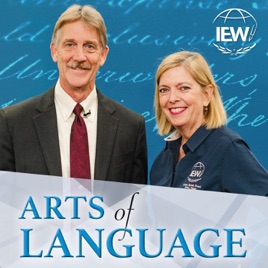
4.9
370
370
The Arts of Language Podcast
IEW (Andrew Pudewa)

4.9
112
7
The Birds & Bees
The Birds & Bees
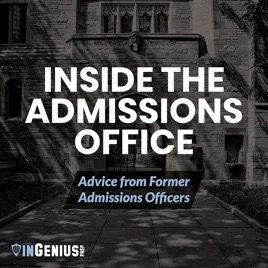
4.3
98
90
Inside the Admissions Office: Advice from Former Admissions Officers
InGenius Prep

4.5
155
71
Learn English with Coffee Break English
Coffee Break Languages

4.9
169
200
This Teacher Life
Monica Genta
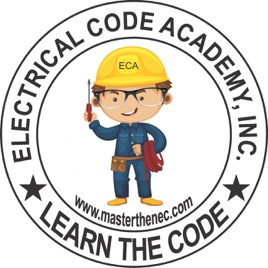
4.6
119
811
Master The NEC - PODCAST
Paul W. Abernathy
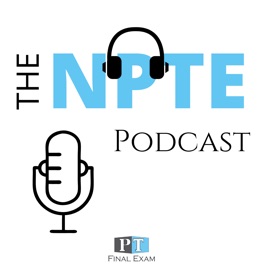
4.9
305
99
The NPTE Podcast
Dr. Will Crane PT, DPT, OCS

4.5
738
57
Learn English | EnglishClass101.com
EnglishClass101.com
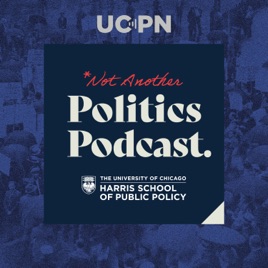
4.6
138
107
Not Another Politics Podcast
University of Chicago Podcast Network
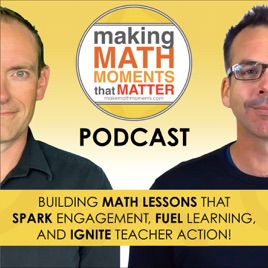
4.8
375
275
Making Math Moments That Matter
Kyle Pearce & Jon Orr



